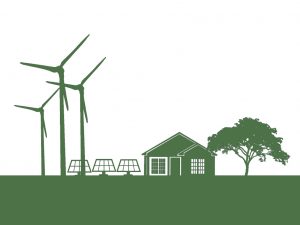The world’s shift to electric cars is progressive and real, indicating that attention could soon swing from a gasoline to electricity based economy, yet oil-sentient Nigeria is stoic on this.
Last week when Tesla delivered the first batch of its Model 3 – its first ‘affordable’ car costing $35,000 (N10.6 million), the company retold a once-upon-a-time ad by a Nigerian bank that “one day cars will run on waters”.
On that note, Tesla also sent to the world a message that was perhaps unpremeditated but which represented an embodiment of what cars will be like from now on – automobiles running on high-force, smooth, noiseless, non-polluting motors, and no longer on explosive internal combustion engines.
Coming few weeks after European countries – Norway; France; UK; and Netherlands, made known their intentions to reduce their CO2 emissions to the climate with bans on IC engines within 2040 at the maximum, this developments should as a matter of fact concern policy makers of developing countries like Nigeria.
But tanked-up on its oil resources, Nigeria is showing no signs that she’s even aware of an obvious future where fewer barrels of her black gold would be needed outside of her chores because her traditional patrons would have to cut down on the number of IC engines on their roads that use the oil she mines and supplies.
At the least, Nigeria believes her oil would remain usable for many years to come, and frankly yes, but perhaps no longer at the volume that would be sufficient to support her oil-reliant economy. So, the time to think is now.
The truth however must be told, and which is that indeed, if Nigeria considers the electric car revolution a farce and treats it the way it currently does to the revolutionary renewable energy industry, then she could be making the same mistake some established and globally recognised telecoms firms like Nokia and Ericsson made some 10 years ago when Apple launched its iPhone.
When the iPhone was launched and carelessly ignored by the majors, it represented a new idea of mobile telephone and which was an all-powerful, smart networked computer that could make voice calls – the kind of technology that saw into the future. Picking it from there, the iPhone then birthed the smartphone evolution that has further changed the world even though most of today’s smartphones are not made by its manufacturer Apple.
Like the iPhone, the story of electric cars would most probably end that way as new products begin to emerge from what Elon Musk’s Tesla has refined to challenge the very difficult art of manufacturing safe, affordable, and attractive cars in massive numbers.
Electric cars from reports, are proving to be much less complex than IC engine cars. They also require much less maintenance, in addition to their zero emissions, and claims they last longer. All these indicate that their acceptance would also be swift. When this happens, Nigeria will be forced to find other uses for her oil.
Already, Germany’s leading car manufacturers which include VW, BMW, Audi, Ford, Porsche and Daimler, had shown signs they may be worried about the development when they recently got together in a diesel summit in Berlin, to consider the industrial implications of the emissions-cheating scandal and the decisions of top European governments to outlaw petrol cars and vans from 2040. Is Nigeria thinking about this?





